Vitali Kalesnik – investing in a world of geopolitical instability and high inflation
Merryn talks to Vitali Kalesnik of Research Affiliates about the situation in Ukraine, the consequences of sanctions on Russia, and how inflation will affect us all – for better and for worse.
Get the latest financial news, insights and expert analysis from our award-winning MoneyWeek team, to help you understand what really matters when it comes to your finances.
You are now subscribed
Your newsletter sign-up was successful
Want to add more newsletters?

Twice daily
MoneyWeek
Get the latest financial news, insights and expert analysis from our award-winning MoneyWeek team, to help you understand what really matters when it comes to your finances.

Four times a week
Look After My Bills
Sign up to our free money-saving newsletter, filled with the latest news and expert advice to help you find the best tips and deals for managing your bills. Start saving today!
Subscribe to the MoneyWeek Podcast on one of these platforms:
Transcript
Merryn Somerset Webb: Hello and welcome to the MoneyWeek magazine podcast. I am Merryn Somerset Webb, editor-in-chief of the magazine. This podcast is being recorded on March 3rd, 2022. With me today is Vitali Kalesnik who is a partner and the director of research at Research Affiliates. Vitali, thank you so much for joining us today.
Vitali Kalesnik: Good morning.
MoneyWeek
Subscribe to MoneyWeek today and get your first six magazine issues absolutely FREE

Sign up to Money Morning
Don't miss the latest investment and personal finances news, market analysis, plus money-saving tips with our free twice-daily newsletter
Don't miss the latest investment and personal finances news, market analysis, plus money-saving tips with our free twice-daily newsletter
Merryn: I think that we must start, of course, with Ukraine and what is happening there. And I know this is one of your areas of expertise, so I wonder if we could just start there and you could give us your view on all the horrors.
Vitali: It’s my area of expertise, probably more by coming from that region, although I haven’t been living there for more than two decades. Actually, I have lots of relatives in Ukraine. I have a lot of relatives in Belarus, which is not directly fighting with Ukraine, but it’s providing territory for Russia. So, I follow both Russian, Belarusian, and Ukrainian media pretty closely. And as I said, I have relatives in Ukraine, Kyiv, which has been encircled right now and being bombed.
So, I’m following the situation pretty closely. The truth is the situation is pretty scary. For people on the ground, it’s very dangerous. There are lots of civilian casualties, very sadly, and the cities are being shelled, bombed, etc. So, it’s a bloody war started by Russia and it’s unprovoked, and it has human casualties, lots of human casualties, so that’s extremely bad.
Now, looking at how things have been developing, it looks like Russia was expecting a very quick defeat. They were expecting the Ukrainian forces to fold. And that transpires from the way everything was communicated, the way that strategically, troops were used on the ground. And obviously, that was a very big blunder and miscalculation, specifically, probably, by the Russian president Putin, who has built full control of the political system there and who is the only one making the decisions. And so, that’s the current situation.
Now, we’ve seen a lot of optimistic news in the sense that Ukraine didn’t fold. They’re very brave and fighting against the aggression. Now, having said that, we are getting to a place in the war where it’s… Let’s put it straight that Russia has been putting some restraints on the use of military force. It’s a big military force. It’s a military force that is designed to turn a million big cities into the Stone Age state in a matter of hours, probably, and they are capable of a lot more damage.
And the big danger with the situation is that obviously, they still have a lot of reserves and troops on the ground that could do that damage. And the longer the situation persists, the more chances that people will just get numb to the human aspect of it. People will get more unhinged and we could see worse coming through even further. So, that’s my big fear and that’s still a big danger of this whole situation.
I’d love it all to end, but I’m just afraid that the peace talks, or so called peace talks, that they are having are maybe just a tactic to prolong the time, capture more ground, and create a stronger negotiation position. So, that’s the big danger, and so, as of today, my feeling, my reading of the situation is that it’s still pretty bad and pretty dire.
Merryn: It sounds like your fear is also your expectation.
Vitali: Correct. Well, we’re about a week after the real war has started. And before that, I would have thought that this development was unthinkable. Why? Because, well, I think that nobody in their right mind would just bring these troops in and start attacking this huge country. So, Russia has accumulated, let’s say, 150,000 to 200,000 troops on the borders of Ukraine. That’s a big, big army, but Ukraine is a big country too.
It’s a big country in terms of population. And they’ve been in a war like situation for the last eight years, so they’ve been training. They have arms. These are not arms that are used for aggression, but arms that are used for protection. But they have modern, effective arms. So, I think the Russian military and Russian leadership has done a very serious miscalculation.
They were expecting Ukraine to fold in a matter of hours and by now, they were expecting to be celebrating a huge military victory. And I think Putin is a casualty of Covid and casualty of a group think, casualty of isolation where probably even before that, well, Putin, by training, comes from the former KGB; later, head of FSB, which is the successor to the KGB.
Basically, he is not the most trusting person, so at all times, probably, the amount of sources that he was getting and the amount of opinions that he was listening to was pretty small. And in the Covid times, it probably drastically decreased. All these images of him sitting 20 feet away from the person he is speaking to, and he probably has very few people that he actually talks to. So, that means that the amount of actual real information that he’s getting is very low.
And probably by now, his opinions are probably not challenged at all. And so, that’s a very big failure of governance. So, when we have a situation, and coming back to is it the worst? Before, I wouldn’t have thought that it was possible, but now it looks like it’s a big failure of governance and a big misunderstanding by the Russian leadership of the realities on the ground, and that opens a lot of possibilities.
So, I’d hope that everything will go for the better. I’d hope that there is communication where Putin understands that he has made a blunder and he pulls for an exit in a way that doesn’t destroy too many lives. But who knows? At this point, I think we could be prepared for a lot more possibilities.
Merryn: Let’s think about some of the consequences of this. It’s interesting that you suggest that the whole invasion is somehow a continuation of the isolation of Covid. Yet another unexpected consequence of the lockdowns during the pandemic. And there are various other factors that have come out of the last couple of years that the situation in Ukraine appears to exacerbate. So, the pace of, say, deglobalisation around the world.
It’s fascinating to see how Russia has, effectively, been de-globalised in a matter of weeks. The ongoing supply-chain difficulties that we’ve seen for the last two years, suddenly exacerbated again, and of course, all this feeding into rising inflation.
So, these are all things that have been building over the last year and are suddenly shown in even sharper relief by this situation in Ukraine. So, what would be the long-term, or even short-term, impact of that on markets and on economies?
Vitali: Obviously, Russia is a very big player in the energy market, but also, it’s a huge country and it also is a big supplier of metals and a number of other things that feed into our consumption basket. And so, with Russia doing what it’s doing, it’s just natural to expect that they will be under sanctions and these sanctions are not going away any time soon.
And what it means is that we have disruptions in the energy supplies, we have disruptions in aluminium, nickel, and other natural resources. And so, when we have disruptions in those resources, obviously, the prices will go up. And that will feed even further into inflation. Now, the Covid situation, during Covid, we had seen an unprecedented period of spending by the first world, because we could, because we could spend money and save lives.
But having said that, outside of wartime, it was probably the biggest expansion of the balance sheet, raising debts, raising spending by the government, that we’ve seen. And that’s just coming after, essentially, a decade long, and probably more than a decade, so from about 2008 from the time of the global financial crisis, we had an unprecedentedly long period of very loose monetary policy.
What it translated into is that the markets are awash with cash, and so, the market may be just looking for the bad news to react in terms of the inflation. Because inflation also has quite a bit to do with expectations and anchoring. Prices tend to be sticky, but once they get unhinged, once they start moving, they can start moving quite fast, and that’s a big danger. So, one big danger, probably in financial markets is rising oil and energy prices.
Another one is that all of that, plus the monetary situation that we’ve seen, will feed into global inflation, accelerating very fast, and being quite hard to control. Now, central banks will have to control it, otherwise they will start losing credibility very fast.
Merryn: Haven’t they lost credibility already with all that business last year of inflation being transient, transient, transient… oh… whoops, 7%?
Vitali: Well, they have not fully lost it. There were periods of inflation in the early 80s much higher than this, and some countries… Again, I come from the world which, in the 90s, experienced hyperinflation. So far what we have here is nothing like the 70s and 80s in the developed world, forget about hyperinflation. And when we lose full credibility, that can, quite quickly, unwind into much higher inflation than we have even seen.
So, from that perspective, I think that central banks will have to raise interest rates, but having said that, they’re quite constrained with how fast and how much they can do it before governments will be under very big strains in financing their debt. And so, I think, from these two constraints, what it means is we will likely live in a period of not very high inflation, but definitely heightened inflation. So, inflation quite considerably higher than we’ve experienced in the last 20 years or so.
Merryn: Would you then expect, and there’s been a reasonable amount of talk recently, because central banks are unable to put interest rates up to where they would normally be, relative to inflation, rightly enough, interest rates for where they used to be in the old days, a couple of percentage points above inflation, but obviously, our world would collapse around us. There’s been quite a lot of talk about possibly different ways of trying to control inflation.
Price controls, for example, which I think you and I probably know don’t work, but lots of people seem to believe would work. There’s been talk about different types of mechanisms, would you expect that?
Vitali: I think everyone, in central banks, would be very realistic about the effectiveness of these controls. Controlling prices directly, in the modern economy, is just impossible. So, I don’t see the efficacy of these measures playing out. And people making those decisions are pretty realistic. Having said that, on top of that, I think that we should realise that inflation, even though we are saying inflation is bad and governments would be pretending that they hate inflation…
Merryn: …they love it really…
Vitali: …but they don’t really, right, because for them, it’s a way out. It’s a very cheap and easy way to get out of this big debt situation, just inflate your debt away.
Merryn: But it’s also the only way out, isn’t it? There is genuinely no other way out. And what you’ve just described, inflation being not what we’ve come to expect over the last decades, so not knocking around 1%, 2%, 2.5%, but knocking around, say, 4%, 5%, that surely is exactly what most Western governments want, because that way, they can erode the debt properly over a decade or so without having to do anything politically drastic.
Vitali: Precisely.
Merryn: And if it’s their dream, it’s also our dream, actually, because we need this government debt to be eroded away as well. And there are huge levels of private debt across economies, such as ours and the US, and the huge mortgages, student loans, etc. If we can find a way to have a surreptitious jubilee by running inflation at 4%, 5% for a decade, in a way, we all win.
Vitali: Well, many people win, but the debt has two sides. Who pays? And the people who pay are probably going to be the retirees. So, retirees have accumulated a big amount of assets and we’re still living in a period when the baby boomers have been retiring and are continuing to retire. And that demographic aspect of the retirement cycle means that they’re the cohort of the economy and population who have accumulated a lot of assets.
So, essentially, who holds the other side of the debt? Well, it’s this part of the population. And so, what you’re saying is yes, it is good news for the younger generation and to the government, it’s probably not such good news for the retirees who have a not so nice prospect. So, essentially, they will be taxed away with negative real interest rates.
Merryn: But the only thing to say about that is that they will be taxed by negative real interest rates, but if they weren’t taxed like that, they’d be actually taxed, wouldn’t they? The old conversation about wealth taxes and further taxes on property, etc, when you need to raise money, you have to go where the money is, and that’s, as you say, the boomers. So, either they get taxed via inflation or they’re going to end up seeing an actual tax on their wealth.
Vitali: It’s either them or the younger population, and I agree with you, well, where would that tax burden be? More likely than not, it will be, if governments were to choose to get out of the current situation with taxation, I think that it will be very hard to structure the taxation system where the younger part of the population is not affected either.
So, I think that yes, the other alternative is taxation, but then that taxation would also tax the younger people, the more productive people today, and that may slow down the economy, and that’s probably the fear. So, I think, from that perspective, the inflation and taxing through the negative real interest rates, the retirees seem like, unfortunately, a very easy way out for the decision makers.
Merryn: Let’s talk about how on earth one invests in this environment, a new environment of geopolitical volatility, high-ish inflation. Where do we invest? How do we do this?
Vitali: In the current environment, what we have is we have a set of assets that are basically priced negative real interest rates, in terms of the fixed income market. We’ve just chatted about it, so it would be very hard for any of these assets to be producing any real positive return. When we are looking at the capitalisation weighted equity, today, it is dominated heavily by US tech. And US tech is a productive sector. It has been a fast-growing sector.
But it comes at very high multiples, so it’s quite an expensive segment. And so, price matters for returns. So, if you buy the same assets at much higher prices, that means that going forward, in the long-term, the return on these assets is going to be lower. So, from the way they’re priced, Research Affiliates do these calculations where we’re projecting the expected return, based on the current valuation.
So, based on that, for example, the US large cap equities are producing zero, or even negative, real returns in the long-term, in the next ten years or so. So, what is left? Well, in terms of the liquid market, actually, there are quite a bit of international assets, international equity, which are priced much cheaper. So, the value sectors outside of the United States, in Europe, UK, are still very attractively priced.
Also, these are the types of sectors that would benefit quite a bit from inflation, because they tend to be more cyclical.
Merryn: So, when you talk about value in the UK, you’re talking about the sectors that have been very unpopular for some time, so mining, big oil, that kind of thing?
Vitali: Precisely. And especially with the supply chain disruption from Russia, for example. These are the types of sectors that will benefit. They will benefit from the oil and natural gas prices that have already gone up quite significantly in Europe. And as I said in the beginning, I’m afraid that the worst is not here yet, and they can benefit quite a bit more.
And furthermore, I think the sanctions in Russia are not just a short-term thing. It looks like a longer-term thing. So, given their size in terms of the energy supplies, we should be prepared for high energy prices for a while.
Merryn: And possibly also high food prices?
Vitali: And possibly high food prices. Russia has recently been a big supplier of wheat. Now, Russia also consumes quite a bit of the agricultural food supplies and Russia will be under sanctions. They will be consuming less, too. So, it’s hard to say, but I guess one other dimension is that Russia is also a big supplier of things like potassium and other types of fertilisers.
And in modern agriculture, that’s extremely important, because basically the agricultural outputs will significantly decline without them. Or if they become very expensive, then it will, again, feed through into food prices. So, again, that’s another element that will definitely feed in through inflation, but it will feed into the cyclical and cheap sectors of the economy. So, coming back to that question of what could be still attractive.
Well, I think that value in the UK and Europe, and some other countries, could be quite attractive. And alternative assets, so investors can directly put a little bit of commodity exposure to their portfolio. Now, depending on how you invest in commodities, it may not necessarily earn you a positive return or it may, if you harvest some alternative risk premia in those markets, but what it will bring is, very likely, some good inflation hedges.
Merryn: Speaking of inflation hedges, what about gold?
Vitali: Gold is a tricky one, because one of the things that Russia has been doing is accumulating gold as the reserve. They were expecting that, well, they could get hit hard with their reserves in dollars or euros, and that’s why they were viewing gold as one of the safer assets, in their opinion. Now, if they start liquidating that gold to get some liquidity, to get some cash, they will have to sell that gold in large quantities, and that could lower the prices. So, I’m not sure if the gold is going to be, at least in the short-term, necessarily a good inflation hedge.
Merryn: Interesting. Let’s talk about a different area that is coming into prominence as a result of the horrible situation in Ukraine, and that is ESG [environmental, social and governance investing). For years now, everyone has been talking about investing within an ESG overlay, but it turns out, of course, that pretty much everyone, particularly in the UK, we all have auto enrolment pensions, many of which are passively invested.
It turns out that almost everybody has a tiny exposure to Russia, which they might not have known about and might not have wanted to have. So, the idea that if you buy a fund that is labelled ESG, you get something that is necessarily jammed full of equities that are doing good for the world. It turns out to be not quite true. Has this, over the last few months, changed your ideas of what constitutes ESG and what does not?
Vitali: Yes. Actually, some types of ESG elements would have helped investors in the current situation because they would specifically probably lower the exposure to Russia. And now as of, I don’t remember, yesterday or this morning, for example, MSCI has declassified Russia out of their indices and deemed it an investor bond. So, Russia is out of the investible universe, for example. And that’s at very low prices. Basically, whatever the allocations that these indices had, they’ve dropped quite significantly.
Now, coming back to ESG, the ESG aspect would have reduced exposure to countries like Russia, because the environmental aspect, obviously, would not enjoy the oil and gas part of it. And social and governance, that part, I’m not sure.
That’s a very important question and probably one lesson that we should learn from this situation, currently, the social and governance aspect is looking more into the company’s specific situation, and tends to ignore the country-wide risk. But what we have in the current situation is, essentially, a failure of governance on the country level in Russia, where basically, there are no checks and balances.
There is a very small group of people making all the calls in a very isolated circle, feeding each other’s fears and sometimes, strange beliefs. And if you think of governance, that’s a definition of bad governance. So, I think one of the lessons is obviously that country level governance should probably also start feeding into some of the ESG considerations to inform investor risks.
And also, well, it’s very sad, but it has a very strong social aspect where countries that are choosing to focus more on the military power and not on developing AI technologies and investing into the future research and stuff like this, these are the countries… so military, by definition, is designed to kill people. Well, that’s not very socially friendly. So, from that point of view, militaristic governments, governments with militaristic agendas should also be penalised, because investing in these countries is a risk.
Merryn: So, we should have a new ESG overlay here of not just looking at the management of companies, but looking at the countries, in which those companies are based and thinking about the risk inherent in that, which possibly, a lot of fund managers looking at ESG don’t necessarily do at the moment.
Vitali: Right. And Russia is just one very strong example of that, but we can look at other countries. So, China, for example. China has interesting… well, not interesting, interesting is the wrong word… menacing and scary claims to Taiwan. Now, for a very long time, so that’s not very good from a social perspective, if they decided to do that.
And furthermore, from the government’s point of view, if we were to look at China’s governance, for the last 40 or maybe even 50 years, they had steady rotation of their leadership. Every ten years, they had a new prime minister. And unfortunately now, we’re getting to a stage where the internal political situation in China is changing significantly, where they’ve changed the constitution, to the best of my knowledge, where the current leader can stay much longer than ten years.
And I think next March, it’s going to be ten years since Xi is in power, and everything looks like he is going to continue. And China is a very big market, a very big country, and a very big investment market. And so, what does that mean, from the investment perspective? That’s definitely not good news.
Merryn: There’s danger in that longevity of leaders.
Vitali, I think, on that depressing note, we’ll have to end this conversation. That was really interesting, thank you so much for joining us. I hope that you will maybe come back in five or six months, and we can talk through what’s happened in the intervening period and see if things have panned out, hopefully, better than you expect. Thank you for joining us.
Vitali: Thank you very much.
Merryn: If you’d like to hear more from us at MoneyWeek, you know where to go, moneyweek.com. You can sign up there for our daily email, Money Morning, written by the fabulous John Stepek. You can follow us on Twitter and Instagram at @MoneyWeek, you can follow me on Twitter at @MerrynSW, and you can follow John on Twitter at @John_Stepek. If you would like to review the podcast, and we would like it if you did review it, if, that is, you enjoyed it, please do so at your podcast provider of choice.
Get the latest financial news, insights and expert analysis from our award-winning MoneyWeek team, to help you understand what really matters when it comes to your finances.
MoneyWeek is written by a team of experienced and award-winning journalists, plus expert columnists. As well as daily digital news and features, MoneyWeek also publishes a weekly magazine, covering investing and personal finance. From share tips, pensions, gold to practical investment tips - we provide a round-up to help you make money and keep it.
-
 UK unemployment hits highest level since 2021 – will interest rate cuts follow?
UK unemployment hits highest level since 2021 – will interest rate cuts follow?UK unemployment reached its highest rate in almost five years by the end of 2025. Is AI to blame and will the Bank of England step in with an interest rate cut in March?
-
 Did UK inflation fall in January?
Did UK inflation fall in January?After rising in December, analysts expect the next round of UK inflation data to show that disinflation returned in January
-
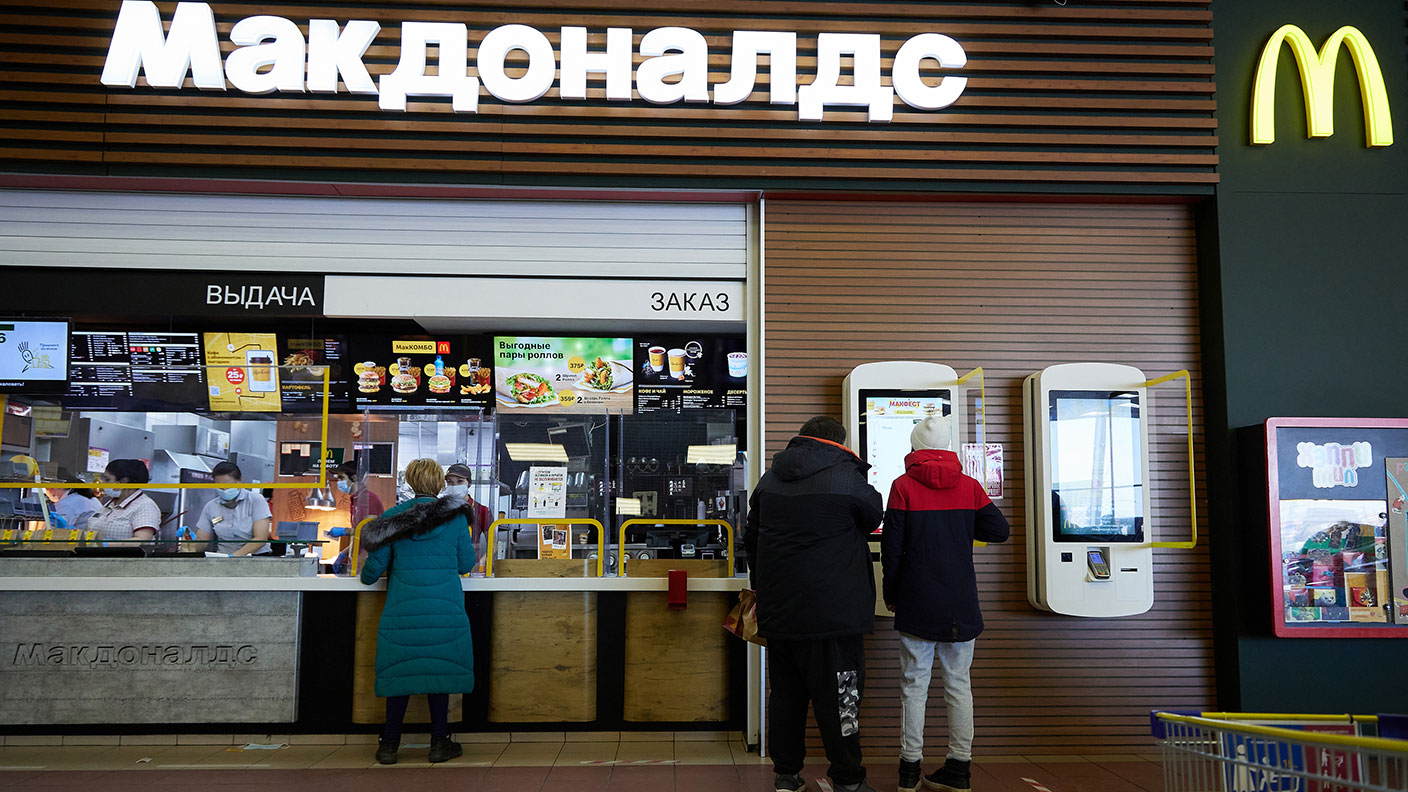 Russia is now a liability for Western companies
Russia is now a liability for Western companiesOpinion Companies which have pulled out of Russia have incurred significant costs, but it's been worth it, says John Stepek – they've seen their market value increase.
-
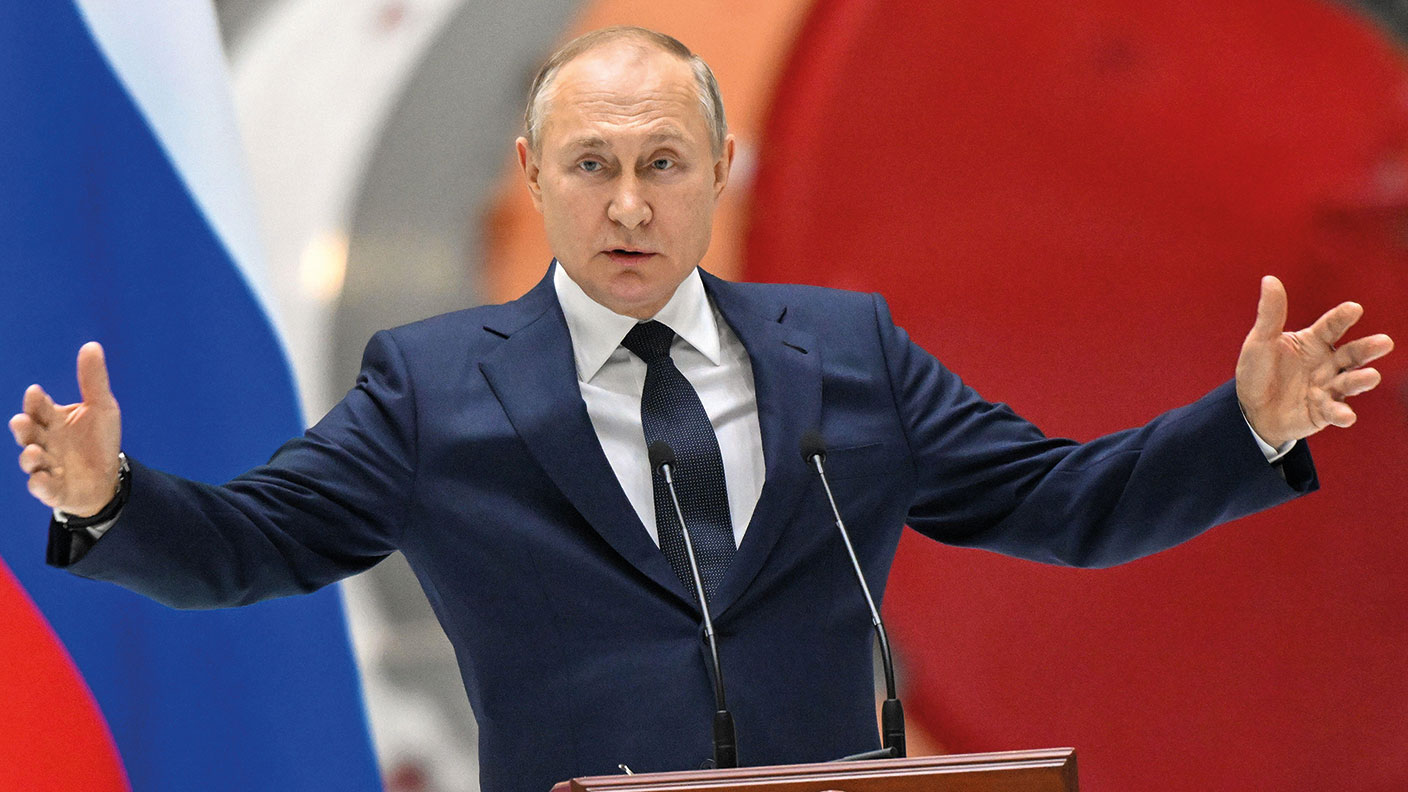 EU tightens the noose on Russia
EU tightens the noose on RussiaNews Brussels has proposed a ban on all Russian oil imports. Could that work? Emily Hohler reports
-
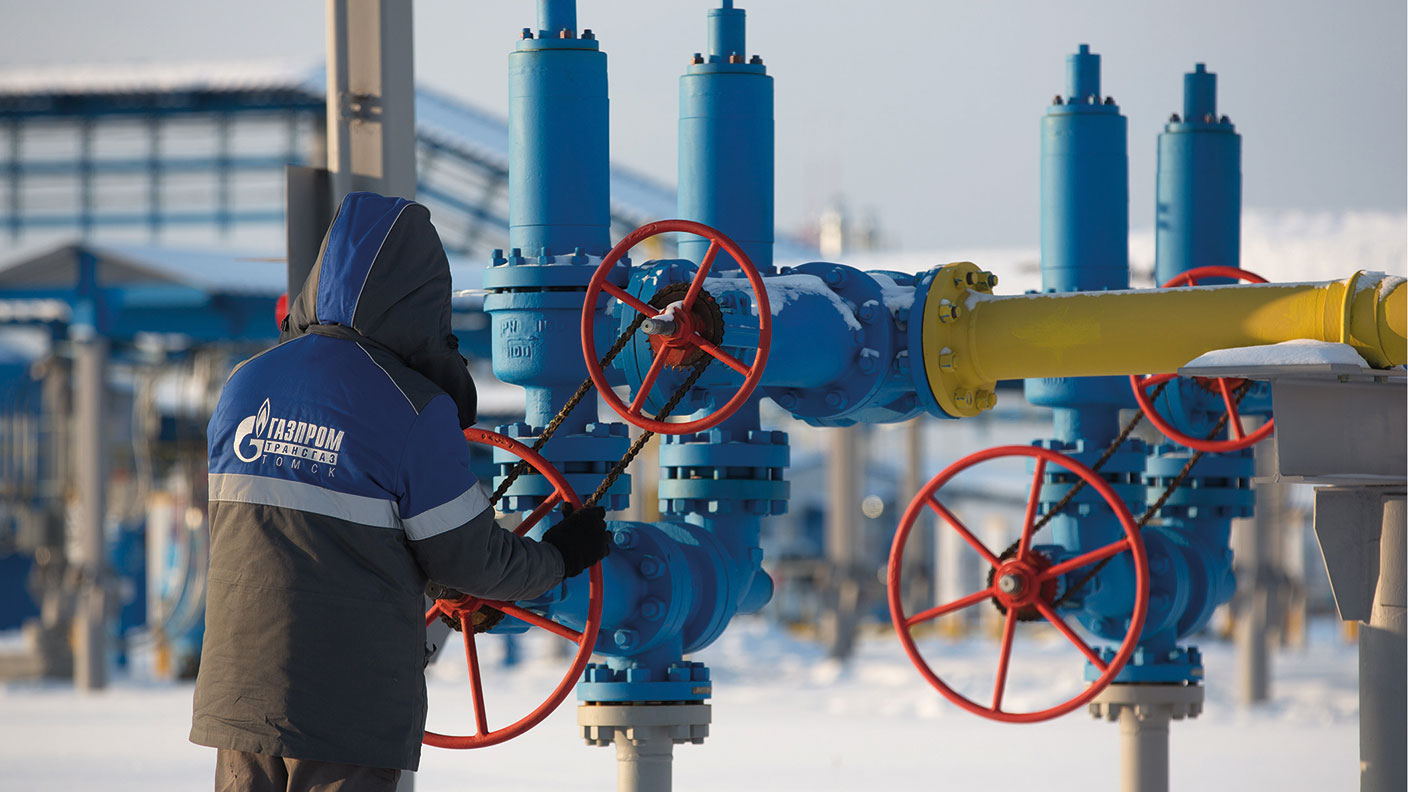 Russia ups the ante on Europe's gas supplies
Russia ups the ante on Europe's gas suppliesNews Russia's suspension of natural gas to Poland and Bulgaria saw the gas price spike by 24%. A complete shut-off could see it rise by 200%.
-
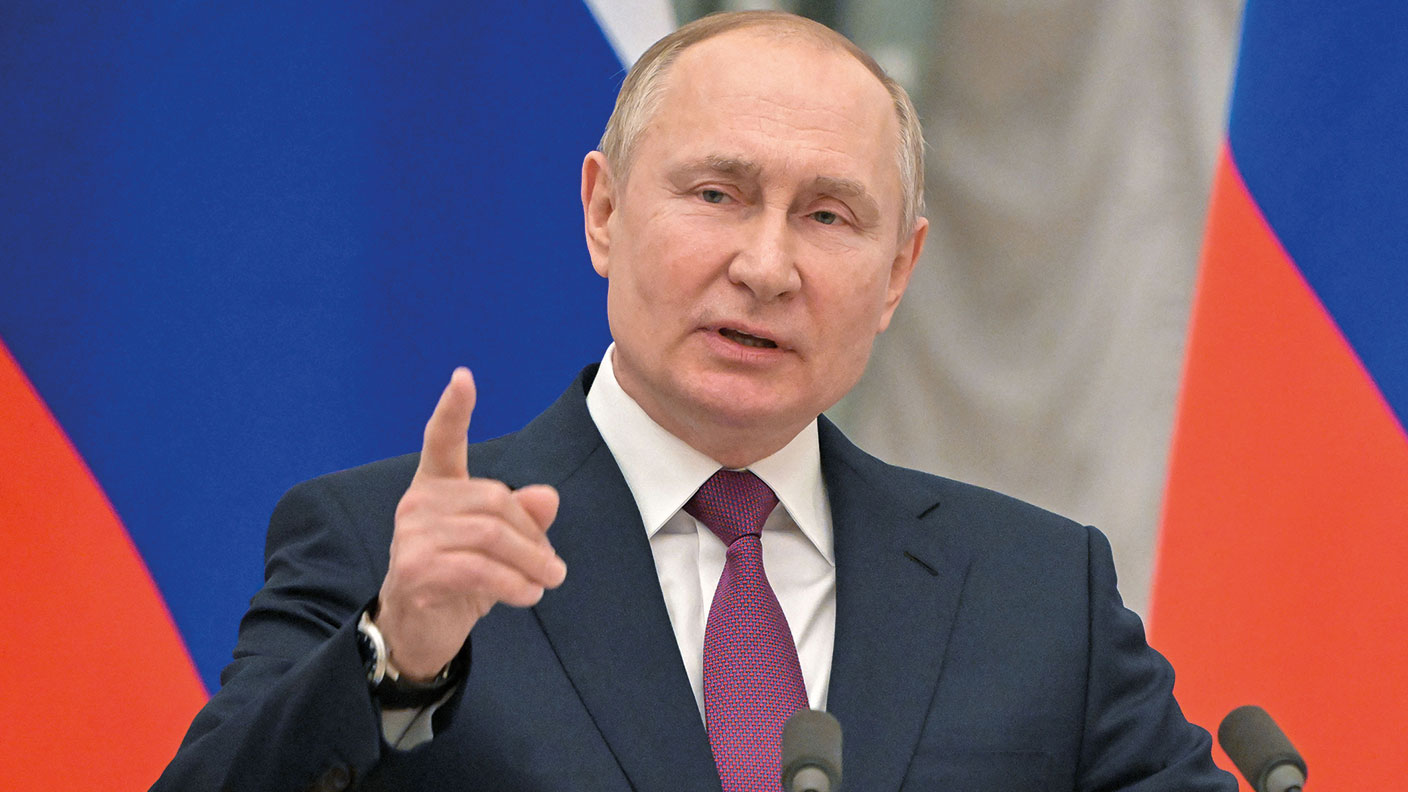 Russian aggression is a big blow for the world’s “net zero” ambitions
Russian aggression is a big blow for the world’s “net zero” ambitionsBriefings Switching the world economy over from fossil fuels to green alternatives was always going to be a challenge. It just got a lot harder. Simon Wilson reports
-
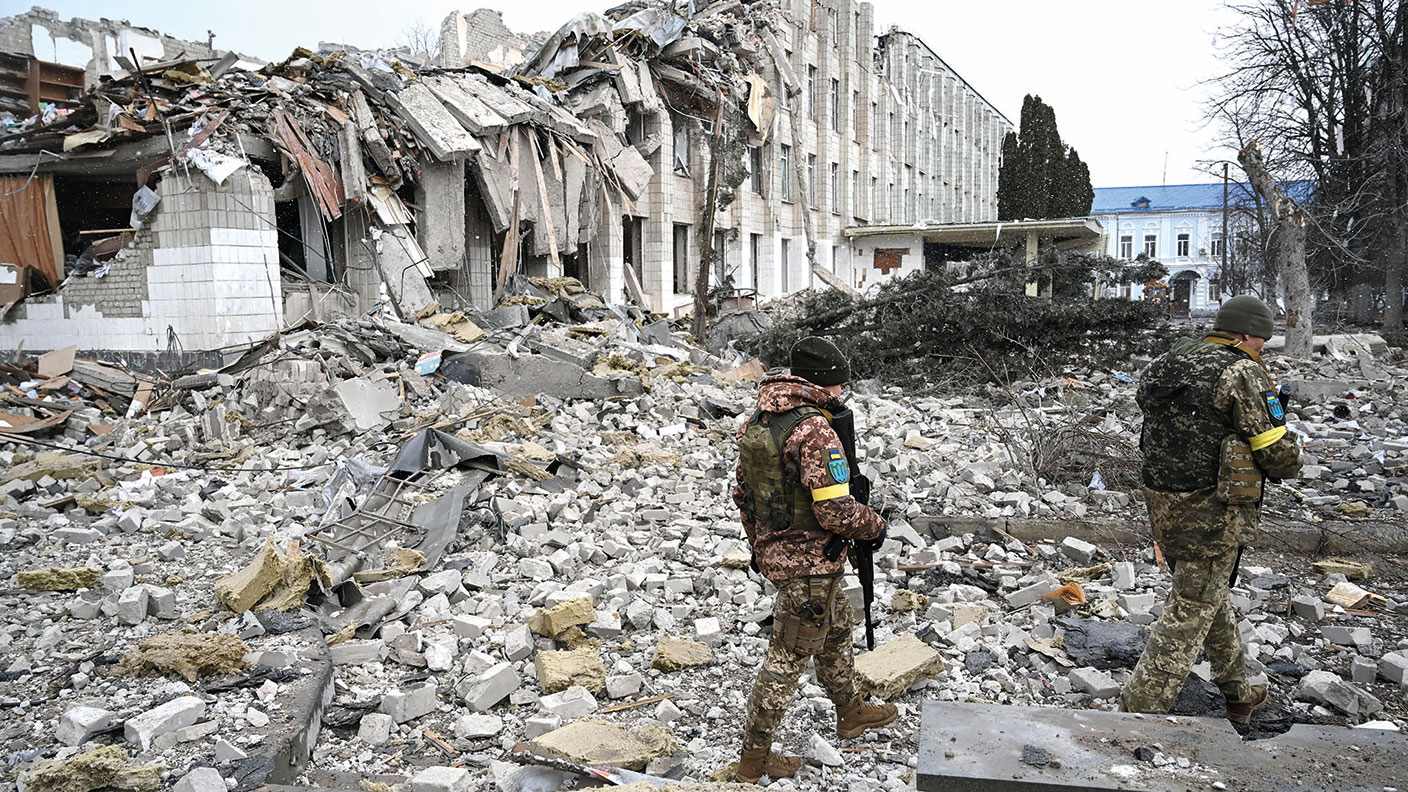 Why inflation matters more than war
Why inflation matters more than warNews Nuclear war isn't the kind of risk that investors can usefully take into account when building a portfolio. Inflation and stagflation, however, are.
-
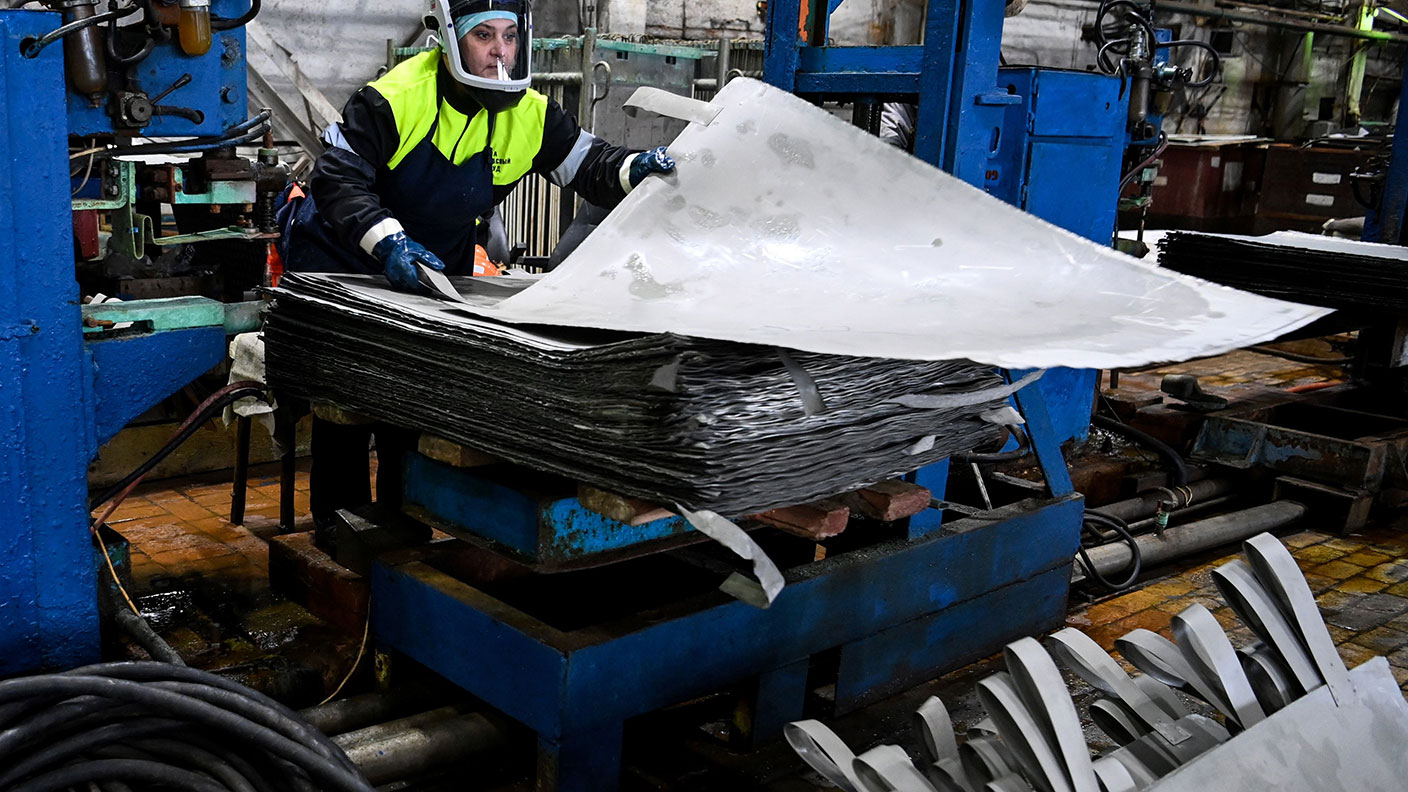 Why has the nickel price trebled since Monday?
Why has the nickel price trebled since Monday?Analysis The price of nickel has risen by 250% this week to over $100,000 a ton. John Stepek explains what's going on and how it might affect you.
-
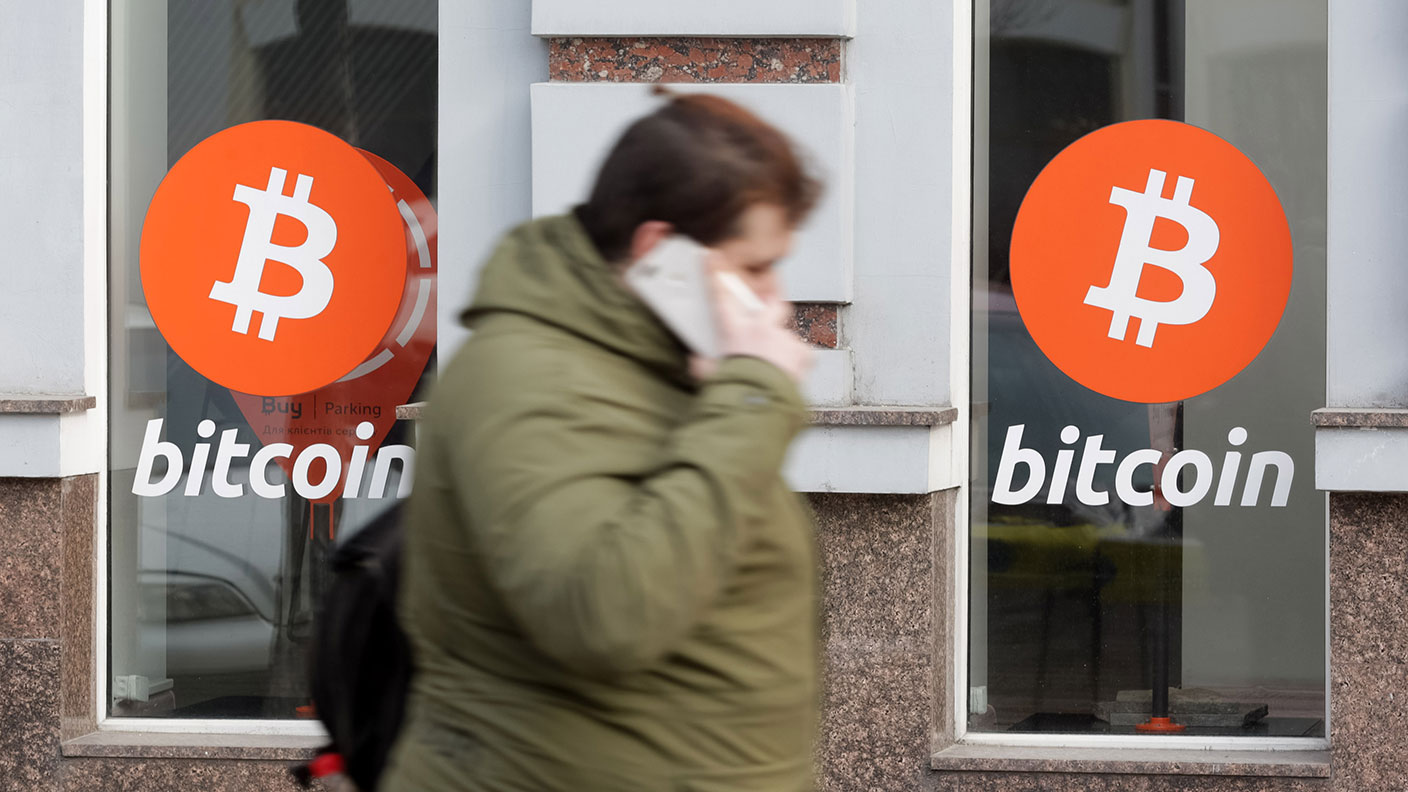 The case for cryptocurrencies in times of war
The case for cryptocurrencies in times of warBriefings Both sides in the Russia-Ukraine war are turning to cryptocurrencies. Saloni Sardana looks at the case for digital cash in times of war.
-
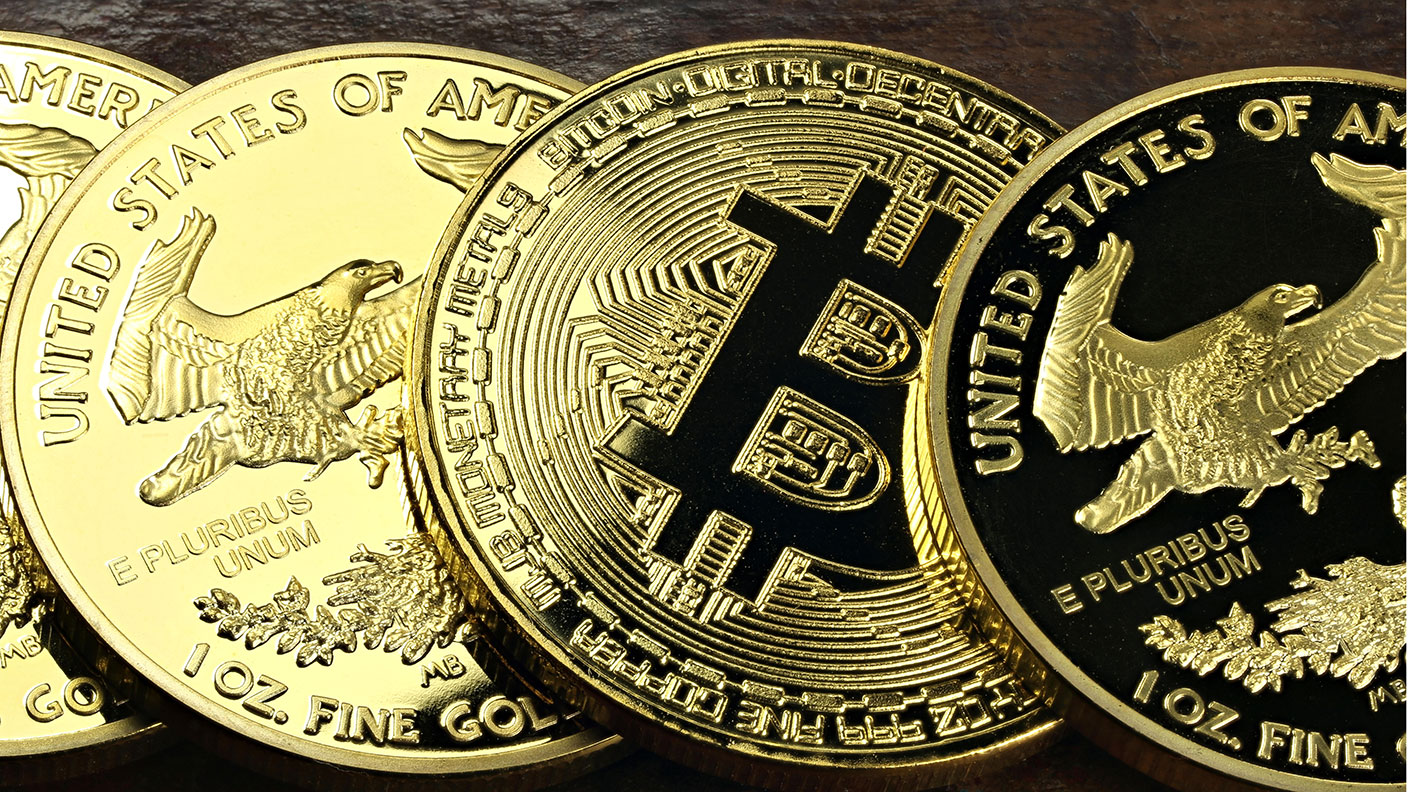 Why all investors need to own gold – and bitcoin
Why all investors need to own gold – and bitcoinOpinion Inflation, war, currency debasement – the world is changing fast and investors need to adapt. That means owning both gold and bitcoin, says Dominic Frisby.

